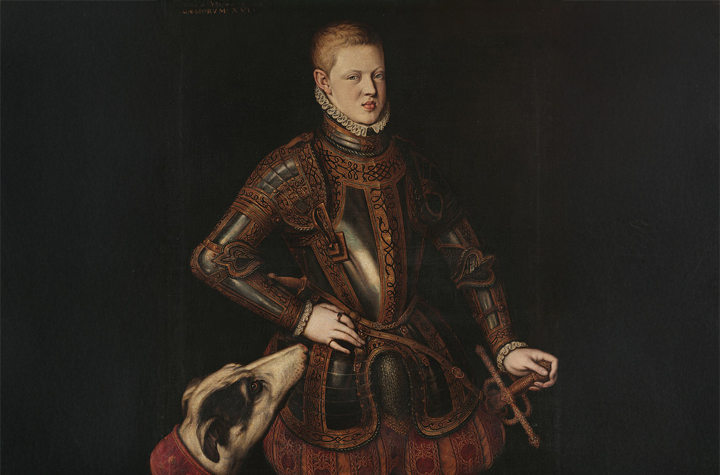Dom Sebastião I of Portugal (1554-1578) was the sixteenth king of Portugal, known for his mysterious disappearance in the Battle of Alcácer-Quibir, in 1578 and for the myth that formed around his figure, the so called “Sebastianism”.
He was born in Lisbon on January 20, 1554, and became king at a very young age, just three years old, after the death of his grandfather, King João III. As Sebastião’s father died before he was born and his mother, the Spanish Infanta Joana, returned to Spain, he was raised by his grandmother, the Widow Matriarch Queen Catherine of Austria.
Dom Sebastião was a deeply religious king and influenced by ideals of chivalry and crusades. From an early age, he embraced a desire to lead a crusade against Muslims in North Africa and this culminated in his decision to organize a military expedition to Morocco, which resulted in the fateful Battle of Alcácer-Quibir, on August 4, 1578. In the battle, the Portuguese army was decimated, and Dom Sebastião, only 24 years old, disappeared in combat. This disappearance created uncertainty about his fate, as his body was never found and many Portuguese believed that he was alive and that one day he would return to save Portugal. This feeling gave rise to the myth of “Sebastianism”, a messianic belief that Dom Sebastião would return on a “foggy day” to restore the country’s glory.The death of Dom Sebastião, without heirs, led Portugal to a succession crisis that culminated in the Iberian Union in 1580, when the Portuguese throne was assumed by King Felipe II of Spain, beginning a 60-year period of Spanish rule over Portugal.



